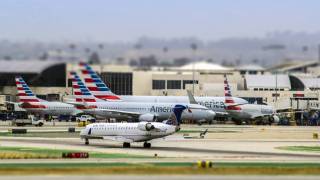Cruise Ship Alert Extended Through September

The U.S. CDC typically posts travel health notices for countries, not types of transportation, such as ships, airplanes, or trains.
However, because of the increased risk of transmission of the SARS-CoV-2 virus on cruise ships, the CDC is now advising U.S. travelers to defer all cruise travel.
On August 28, 2020, the CDC issued a Level 3 Travel Alert, Avoid Nonessential Travel, which says ‘Cruise passengers are at increased risk of the person-to-person spread of infectious diseases, including COVID-19, and outbreaks of COVID-19 have been reported on several cruise ships during 2020.’
Recent reports indicate this new coronavirus, like many other viruses, appears to spread more easily between people in close quarters, such as aboard ships and boats.
Also, seniors and people of any age with underlying medical conditions such as obesity, heart disease, chronic lung disease, and diabetes, are at an increased risk of severe illness if infected with SARS-CoV-2, says the CDC.
On March 14, 2020, CDC issued an initial ‘No Sail Order and Suspension of Further Embarkation for cruise ships operating in U.S. waters. This No Sail Order was extended on July 16th for cruise ships with the capacity to carry at least 250 passengers in waters subject to U.S. jurisdiction and remains in effect through September 30, 2020.
Unfortunately, the CDC’s No Sail Order has disrupted even small cruise lines.
According to the Rhode Island-based Blount Small Ship Adventures website, they temporarily ceased operations (launched in 1966) due to the COVID-19 disease pandemic. “It was really just the requirement that all the cruise lines had to shut down for COVID, and at this point, we decided not to start again,” said President Marcia Blount, on August 18, 2020.
In addition, the CDC issued suggestions such as ‘do not board a cruise if you are sick, if you know you have COVID-19, or if you were exposed to a person with COVID-19 in the past 14 days. And if you do get sick with a fever, worsening cough, or have trouble breathing during your cruise, stay in your cabin and notify the onboard medical center immediately.’
In addition, the U.S. Department of State advises travelers to not go on cruises.
‘This is a dynamic situation and those traveling by ship may be impacted by travel restrictions affecting their itineraries or ability to disembark or may be subject to quarantine procedures implemented by the local authorities,’ says the State Department.
And, ‘While the U.S. government has successfully evacuated hundreds of our citizens in the previous weeks, repatriation flights should not be relied upon as an option for U.S. citizens under the potential risk of quarantine by local authorities.’
‘Passengers who plan to travel by cruise ship should contact their cruise line companies directly for further information on the current rules and restrictions and continue to monitor the travel.state.gov website for updated information.’
Furthermore, the State Department encourages travelers to enroll in the Smart Traveler Enrollment Program to receive Alerts and make it easier to locate you in an emergency. The Department uses these Alerts to convey information about terrorist threats, security incidents, planned demonstrations, and natural disasters.
For emergency assistance when traveling abroad, please contact the nearest U.S. Embassy or Consulate or call the following numbers: 1 (888) 407-4747 (toll-free in the United States and Canada) or 1 (202) 501-4444 from other countries or jurisdictions.
The CDC’s best advice is to ‘discuss cruise ship travel plans with your healthcare provider.’
Vax-Before-Travel publishes international travel news and alerts.
Our Trust Standards: Medical Advisory Committee
























